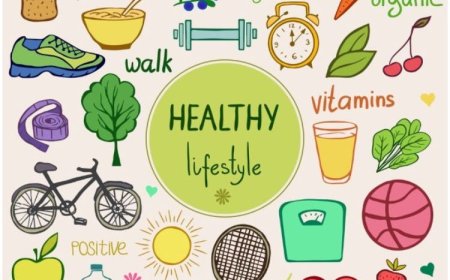Instead of viewing food as the enemy or attaching moral value to what you eat, strive to cultivate a healthy and balanced relationship with food. Allow yourself to enjoy a wide variety of foods without guilt or shame, and practice flexibility and moderation rather than strict rules or restrictions. By adopting a more relaxed approach to eating, you can reduce feelings of deprivation and foster a healthier mindset around food.
8. Honor Your Hunger and Fullness:
Tune into your body's signals of hunger and fullness, and honor them without judgment or criticism. Eating when you're hungry and stopping when you're satisfied is key to maintaining a healthy relationship with food and preventing overeating. Trust your body's innate wisdom to guide you in making nourishing choices that support your overall well-being.
9. Seek Professional Support if Needed:
If you're struggling with disordered eating patterns, body image issues, or emotional eating, don't hesitate to seek professional support from a registered dietitian, therapist, or counselor who specializes in intuitive eating and eating disorders. They can provide personalized guidance, support, and resources to help you navigate your relationship with food and body image in a healthy and empowering way.
10. Practice Gratitude and Mindfulness:
Cultivate an attitude of gratitude and mindfulness in your daily life, both at meal times and beyond. Take a moment to express gratitude for the nourishing food on your plate and the opportunity to fuel your body with wholesome ingredients. Engage all your senses as you eat, savoring the flavors, textures, and aromas of your food. By practicing gratitude and mindfulness, you can enhance your eating experience and deepen your connection to the present moment.
11. Focus on Long-Term Health and Well-Being:
Shift your mindset from short-term weight loss goals to long-term health and well-being. Instead of chasing after fad diets or quick fixes, focus on making sustainable lifestyle changes that support your overall health and vitality. Emphasize habits that promote physical, mental, and emotional well-being, such as regular physical activity, adequate sleep, stress management, and nurturing relationships.
12. Celebrate Progress, Not Perfection:
Remember that health is a journey, not a destination, and that progress is more important than perfection. Celebrate the small victories along the way, whether it's trying a new recipe, incorporating more vegetables into your meals, or listening to your body's hunger cues. Be gentle with yourself and embrace the imperfections and setbacks as opportunities for growth and learning.
Conclusion:
On International No Diet Day and every day, let's reframe our approach to health and wellness by prioritizing intuitive eating, self-care, and body positivity. By embracing a holistic and compassionate approach to nourishing our bodies and minds, we can cultivate a healthier and happier relationship with food, our bodies, and ourselves. Here's to celebrating our individuality, embracing our unique beauty, and living life to the fullest, free from the constraints of diets and restrictions.


























































































